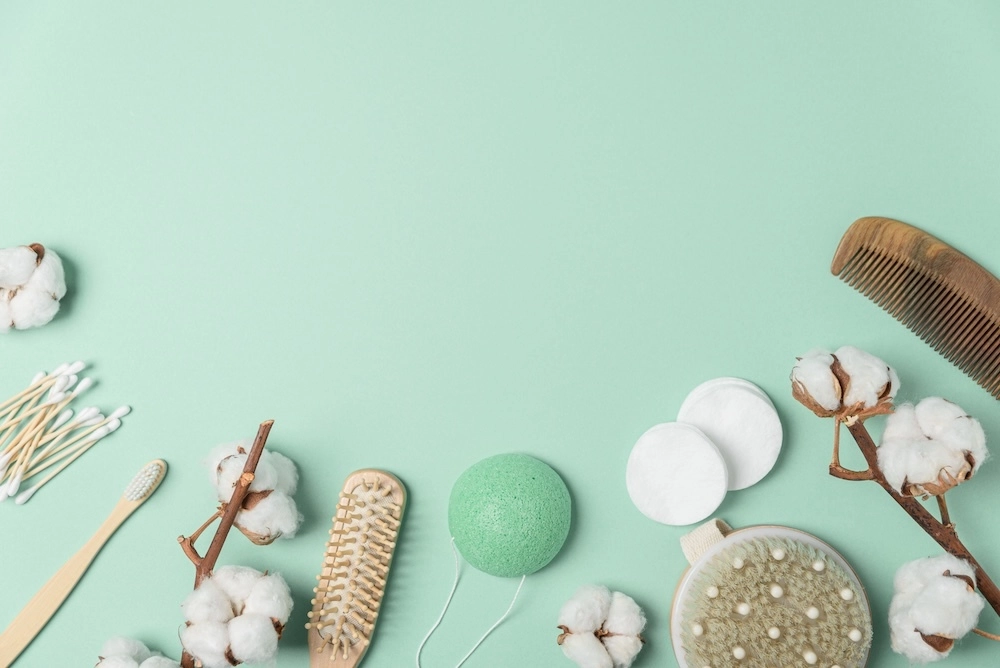Intimate hygiene is one of the most personal aspects of self-care—and also one of the most misunderstood. The truth is, your body knows what it’s doing. Healthy intimate areas are self-cleaning and beautifully complex. You don’t need harsh soaps, synthetic fragrances, or “feminine hygiene” marketing to feel clean. What you need is knowledge, respect for your body, and a gentle approach that works with your natural balance.
Why Natural Intimate Hygiene Matters
Many commercial products marketed for “freshness” or “feminine care” are actually full of ingredients that disrupt your body’s natural flora and pH. These include:
- Synthetic fragrances and dyes
- Harsh surfactants (like SLS)
- Antibacterial agents that kill good bacteria
- Tight or non-breathable products that trap moisture and heat
All of these can lead to irritation, infections, or chronic imbalances. Natural intimate care supports your body’s natural ability to stay clean, balanced, and healthy—without introducing unnecessary risks or waste.
Understanding the Vaginal Ecosystem
Self-Cleaning Magic
The vagina is self-cleaning. It maintains its own internal environment through beneficial bacteria (primarily lactobacilli) that keep pH levels slightly acidic (around 3.8 to 4.5). This acidity helps protect against infection and keeps everything in balance.
External Care Only
Intimate hygiene means caring for the vulva—the external area. You should never douche or try to clean inside the vagina. Doing so disrupts its natural balance and can lead to yeast infections or bacterial vaginosis.
Daily Intimate Care Routine
Less Is More
You don’t need a special soap or scented wipe. In fact, warm water is often enough. If you do use a cleanser, choose one that is:
- Fragrance-free
- pH-balanced for sensitive skin
- Made from natural oils or gentle surfactants
How to Clean Gently
- Use clean hands or a soft washcloth (no loofahs or harsh scrubbing)
- Wash only the external vulva with warm water or mild soap
- Rinse thoroughly and pat dry with a clean towel
Support with Moisture
If you experience dryness or irritation, consider a light natural moisturizer such as:
- Coconut oil (antimicrobial, soothing)
- Jojoba oil (similar to natural sebum)
- Calendula balm (soothing and anti-inflammatory)
Always patch test before applying anything to sensitive skin.
Choosing Sustainable Menstrual Products
Why Go Reusable or Organic
Conventional menstrual products contain bleach, plastic, and fragrances that can irritate or even leach chemicals into your body. They also contribute significantly to landfill waste.
Natural Options
- Organic cotton tampons or pads (chlorine-free, biodegradable)
- Menstrual cups (medical-grade silicone, reusable for years)
- Period underwear (washable and comfortable)
- Reusable cloth pads (soft, breathable, washable)
Start small—switch one item at a time and see what works for your body and lifestyle.
Managing Odor Naturally
Understanding Scent
It’s completely normal for your intimate areas to have a scent. This changes with your cycle, diet, and activity level. A strong or unusual odor can indicate an imbalance—but natural variation is healthy and expected.
Natural Ways to Feel Fresh
- Wear breathable underwear (cotton or bamboo)
- Avoid synthetic tight-fitting pants or pantyliners
- Stay hydrated and eat a balanced diet (probiotics and leafy greens help)
- After workouts or hot days, gently rinse with warm water
Skip any sprays, wipes, or powders that claim to “neutralize odor”—they usually make things worse and may irritate skin.
Dealing with Irritation or Imbalance
Signs of Trouble
- Itching or burning
- Unusual discharge
- Fishy or very strong odor
- Redness or swelling
These may indicate a yeast infection or bacterial imbalance. Try natural support first, and consult a healthcare provider if symptoms persist.
Natural Soothers
- Probiotic-rich foods: Yogurt, kefir, miso, sauerkraut
- Plain yogurt: Can be applied externally to soothe irritation
- Sitz baths: Soak in warm water with calendula, chamomile, or sea salt
- Boric acid suppositories: For occasional use (consult with a professional)
Natural Lubricants and Intimate Products
Choosing a Safe Lube
Many store-bought lubricants contain parabens, glycerin, and synthetic preservatives. Natural alternatives include:
- Aloe vera gel (check it’s 100% pure and preservative-free)
- Coconut oil (great for massage and external use, not latex-safe)
- Olive oil (moisturizing, but can affect latex condoms)
Always make sure the product is body-safe and appropriate for the type of activity you’re using it for.
Eco-Friendly Intimate Care Tools
- Reusable cloth wipes instead of flushable wipes
- Bidets or peri bottles for gentle rinsing
- Organic cotton underwear in breathable styles
- Natural detergent for washing undergarments
These tools reduce waste, respect your skin, and make daily care easier.
Intimacy, Self-Love, and Body Positivity
Intimate care should be about respect, not shame. Your body is smart, strong, and sacred—its scents, cycles, and textures are all part of what makes you human.
Affirmations for Intimate Self-Care
- “My body is clean and whole, just as it is.”
- “I listen to my needs without judgment.”
- “Natural care honors my health and the Earth.”
Let your intimate care routine be an act of quiet rebellion against unnecessary shame and a movement toward informed, empowered self-respect.
Daily Natural Intimate Care Routine
Morning
- Rinse with warm water or a gentle cleanser
- Wear breathable underwear
- Skip perfume or scented sprays
Evening
- Rinse after workouts or long days
- Apply a soothing moisturizer if needed
- Choose reusable, organic period care when applicable
Natural intimate hygiene is about simplicity, mindfulness, and trust in your body’s natural rhythms. With gentle care, conscious choices, and a little education, you can feel fresh and empowered—every single day.








